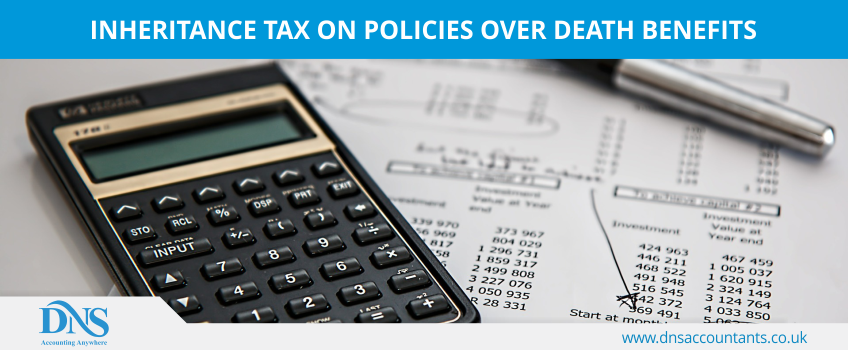Life insurance companies are major providers of investment products in the UK (one can pay through their company as well) They provide a route for putting your money into investment funds. Some, such as pensions, are taxed into a special way, but most are taxed according to the special rules for life insurance. A variety of changes to the UK tax system since the mid-1980s mean that life insurance is now seldom a tax-efficient form of investment. Most people would do better to choose other forms of investment fund, such as unit trusts and open-ended investment companies, investment trusts and exchange traded funds.
With investment-type life insurance, you take out an insurance policy. The amount you pay is called the premium and this can be either regular premiums or a single cash sum at the start of a policy, called a single premium. Some of the premium will pay for life cover, though often only a very small amount; some is deducted in charged; the remainder is invested in one or more investment funds. A fundamental aspect of investment-type life insurance is that the life insurance company pays tax on the income and any capital gains from the investment in the fund. You, in effect, get a credit for this tax but cannot reclaim any of the tax already deducted. You are treated as if the income has already been taxed at the basic rate i.e. 20 %. How the income is then taxed in your hands depends on two factors: the type of policy concerned and the type of taxpayer you are.
Taxes on a Life Insurance Policy

UK insurance companies pay tax on unfranked dividend income at a current rate of 10% within the life policy fund. Tax is levied on interest income at a current rate of 20% and at 22% on rental income from property and offshore income gains. Any profit on assets sold by the fund, less any allowance available, will be subject to capital gains tax at the rate of 22%.
Note: Taper relief is not available to life assurance company funds.
Taxes for International Life Insurance Policies
International policies, i.e. policies offered by an insurance company which is registered outside the UK, will not normally have any TK tax liability on the basis that they are not resident in the UK for tax purposes. In the case of an insurance company based in a low or no tax jurisdiction the issue of withholding tax is relevant in that investment made by the insurance company, such as shares in a UK company listed on NASDAQ for example, will not benefit from a reduction in withholding tax rates since it is unlikely a treaty exists between the US and the jurisdiction that the insurance company resident in. This is not exclusive however to low / no tax jurisdiction since a UK insurance company may suffer withholding taxes, albeit at reduced rates in some circumstances depending of course on the relevant double tax treaty and the domestic law applicable to the payer company.
At present individuals have no personal liability while the policy is in force regardless of whether the policy is UK or non-UK, i.e. before any benefits are drawn. However, this may be subject to change with the introduction of new rules regarding offshore funds.
Non-qualifying Life Policy
A policy that is not a qualifying policy under TA 1988 Schedule 15 may be subject to income tax on a Chargeable Event. These include:
- A death on which benefits become payable
- The maturity of the policy
- The entire surrender of a policy or assignment of it for money or moneys worth if a partial surrender or withdrawal facility exceeds the allowable amount.
- Certain policy loans
- A significant variation to the policy, such as the addition of a life assured or a change in the life assured.
Note: Basic rate taxpayer, i.e., those with income of less than £29,900 for the year 2015 / 16, will not pay tax unless their income, together with a proportion of their policy gains, is large enough to exceed the basic rate threshold.
Any tax arising on the accumulation of the fund for an international life insurance policy would depend on the jurisdiction used. It is common to use countries which apply low or zero rates, therefore allowing the fund to roll up tax-free. However, the funds in these policies may be invested in shares in countries such as the UK, in which case a withholding tax is likely to apply in the absence of a suitable double tax treaty. As stated above, most countries that apply low rates of tax in this manner are unlikely to have a network of double tax treaties.
Example
Ruth, aged 66, has an income of £22,900 in 2015-16. This is the maximum she can have without losing any personal allowance so she qualifies for the full amount for someone aged 65 to 74 of £9,490 and her tax bill for the year is set to be £2,682. However, she decided to cash in a single-premium life insurance policy, making a gain of £2,000. This increases her income to £24,900. Although she is still a basic rate taxpayer and there is no tax for her to pay on the gain itself, her tax bill increases to £2,880. This is because her personal allowance is reduced by £1 for every £2 of income above £22,900. Therefore the £2,000 gain reduces her personal allowance by £1,000. This puts an extra £1,000 of her income into the basic rate tax band adding £200 to her tax bill.
Tax Rate on Policies over Death Benefits
The question of whether income tax is payable is generally determined by the nature of the relevant policy. For this purpose policies can be divided into “qualifying” and “non-qualifying”. An income tax liability may arise on investment profit to “non-qualifying” policies, (or qualifying policies that have been tainted by some event), upon a chargeable event. On a chargeable event no basic rate tax will be payable, and income tax will only be payable in the circumstances mentioned earlier.
Example
If a non-qualifying policy, with premiums totalling £10,000 becomes a death claim, and the sum assured payable on death is £100,000 and the surrender value immediately prior to death was £15,000, the investment profit would be (£15,0000 - £10,000) = £5,000. For a UK resident there would be a liability to higher rate tax (at the rate of 18% for the year 2015 / 16) on the £5,000 fain = £900 tax liability. If the policy has been an offshore policy and the figures were the same, the gain of £5,000 would be subject to all rates of income tax. This would result in a tax liability of up to 40% (which would be £2,000 in this example).
As can be seen from the above example a distinction should be drawn between the “mortality” gain (the effective gain made on death over and above the level of premiums paid into the policy), which is generally not taxable, and the “investment gain” (the difference between the surrender value of the policy and the premiums pain), which may be subject to taxation.
Note: A policy issued by a non-resident company (after 17 November 1983) will not be a qualifying policy until:
Such time as the issuing company is lawfully carrying on UK life assurance business; and the premiums are payable to a branch in the UK and form part of the business receipts of that branch; or, the policyholder is a UK resident and the issuing company’s income from the investment of its life assurance fund is charged to Corporation Tax.
Inheritance or Estate Tax Rate on Policies over Death Benefits

For individuals who are either domiciled or deemed domiciled in the UK, any life assurance policies which are beneficially owned by them (this includes the estate of the life insured or other named persons) will form part of their estate and thus be liable to Inheritance Tax. This also applies to policies issued by the UK life companies and those outside the UK. For individuals who are not domiciled nor deemed domiciled in the UK, only UK policies beneficially owned by then can be liable to Inheritance Tax.
Notwithstanding the above, it is relatively simple to ensure that the policy proceeds fall outside the estate of the life assured, even for individuals domiciled or deemed domiciled in the UK. Normally, all they need to do is to place the policy within a suitable trust (which may be onshore) for their chosen beneficiaries, for example a Flexible Power of Appointment Trust. If structured correctly the proceeds then fall outside the individual’s estate and will not be subject to inheritance tax provided these have not been paid in the seven years prior to death. Many trusts used by life insurance companies for this type of planning are pre-printed and require only the signature and minimum details of the client. Such trusts should be drafted specifically to meet the requirements of the clients.
Inheritance Tax for Domiciled Individuals
As stated above, for individuals who are neither domiciled nor deemed domiciled in the UK, Inheritance Tax will only be an issue if the policy is written as a UK policy. Again, this is relatively easy to overcome by using an appropriate trust (such as an offshore discretionary trust) to hold the policy. Alternatively, the life assurance company can issue the contract “under seal” and then physically move the policy to a jurisdiction outside the UK. The effect of this is to convert the asset into a non-UK situs asset which for UK Inheritance Tax purposes is excluded property and therefore not chargeable. Of course, should the non-domiciled individual subsequently become UK domiciled or deemed domiciled then such foreign assets will lose their excluded property status and fall within the UK Inheritance Tax net.
In this case, and prior to the individual becoming domiciled or deemed domiciled in the UK he could place the asset within an offshore discretionary trust and this protect it from UK inheritance tax indefinitely. It is possible that changes will be made to the system of domicile in the UK so as to remove some of the advantages currently available.
Any questions? Schedule a call with one of our experts.








